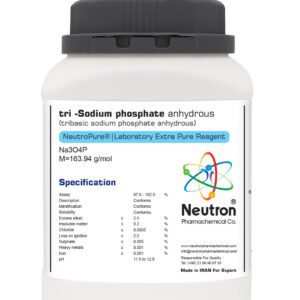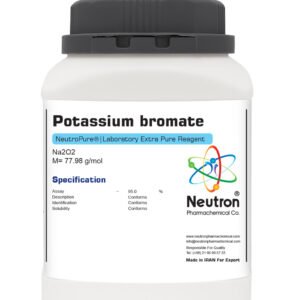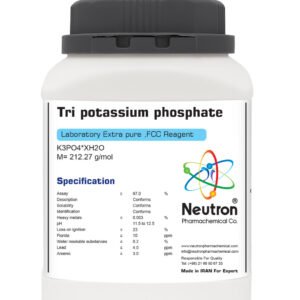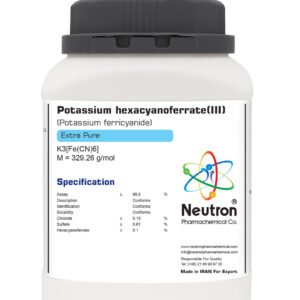استیک اسید 3%
| Formula: | C2H4O2 |
| Chemical formula: | CH3COOH |
| Density: | 1.01 g/cm3 (20 °C) |
| Molar mass: | 60.05 g/mol |
| CAS number: | 64-19-7 |
| EC index number: | 607-002-00-6 |
| HS code: | 29152100 |
| EC number: | 200-580-7 |
| Storage (temperature): | at +20 °C to +25 °C |
| SDS | available |
| RTECS: | AF1225000 |
| R phrase: | R 10-35 |
| S phrase: | S 23.2-26-45 |
| Odour: | pungent |
| Form: | liquid |
| Color: | colourless |
| Explosion limit: | 4 -19.9 Vol % |
| Ignition temperature: | 485 °C |
| PH value: | 2.5 (50 g/l 20 °C) |
| Solubility in water: | (20°C) soluble |
| Solubility in ethanol: | soluble |
| Refractive index: | 1.37 (20 °C) |
| Flash point: | 39 °C (c.c.) |
| Boiling point: | 116 – 118 °C (1013 hPa) |
| Melting point: | 17 °C |
| Vapour pressure: | 15.4 hPa (20 °C) |
| Viscosity dynamical : | 1.22 mPa*s (20 °C) |
| Viscosity kinematic: | 1.17 mPa*s (20 °C) |
| Saturation concentration: | 38 g/m3 (20 °C) |
| Assay | ~ | 3.0 | % |
| Color & Description | Conforms | ||
| Solubility | Conforms | ||
| Identication | Conforms | ||
| Chloride (Cl) | Conforms | ||
| Sulfate | Conforms | ||
| Heavy metals | ≤ | 0.001 | % |
| Nonvolatile residue | ≤ | 0.005 | % |
| Ready oxidizable | |||
| substance | Conforms |
Acetic acid 3% is a dilute aqueous solution of acetic acid, commonly known as vinegar, widely used in food preservation, cleaning, and laboratory applications.
🏭⚗️ Production
Industrial acetic acid is produced mainly by methanol carbonylation or fermentation processes. The 3% solution is prepared by diluting concentrated acetic acid with water under controlled conditions, both industrially and in laboratories.
🔬 Properties
Acetic acid 3% appears as a clear, colorless liquid with a pungent vinegar-like odor. It is miscible with water and has a mild acidic taste. The low concentration makes it less corrosive compared to concentrated forms.
🧪 Applications
It is widely used as a food preservative and flavoring agent, in household cleaning products, and as a mild acid in laboratories for titrations and pH adjustments.
⚠️ Safety
At 3%, acetic acid is generally safe but may cause mild skin or eye irritation upon prolonged contact. It should be handled with basic precautions and stored in a cool, dry place away from strong oxidizers.





